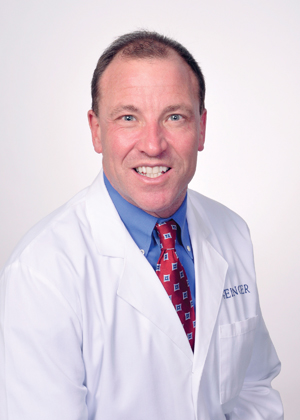A Happy and Healthy 2018: Helping Your Patients Set Realistic Resolutions for the New Year
 A Message from Dr. Christopher Still
A Message from Dr. Christopher Still
Christopher Still, DO, FACN, FACP, FTOS, Co-Clinical Editor, Bariatric Times; Medical Director for the Center for Nutrition and Weight Management, and Director for Geisinger Obesity Research Institute, Geisinger Medical Center, Danville, Pennsylvania.
Dear Colleagues,
First, I’d like to wish everyone a happy 2018!
With the beginning of a New Year, it is that time again when everybody is making New Year’s resolutions. One popular resolution among our patients is losing weight or, for post-surgical patients, getting back on track with their nutrition, fitness, and appointment follow ups. Even as healthcare providers, we can relate to this resolution, as many of us have had the same resolve. We’ve all been there. We make the traditional New Year’s resolution to lose weight and get in shape. One week later, we realize we are too busy or too tired to eat healthier and exercise regularly, so we give up. Our patients likely have the same experiences, but we can play a role in helping them achieve resolution success in the long-term.
For instance, you might explain to your patients that the year is 365 days long and encourage them to not to give up after just seven of those days. Remind them to take advantage of the entire year and resolve to stick with it for the long run.
The thing about New Year’s resolutions is that while the individual making them may have great intentions, they may be setting themselves up for failure by having unrealistic expectations. I find that this is particularly true for exercise resolutions. Regular exercise has been shown to be a crucial part of weight maintenance more so than for weight loss. Occurrence-type exercise, 3 to 5 minutes several times throughout the day versus 30 minutes of continuous exercise has been shown to burn more calories in patients who are not accustomed to regular exercise. It is important to recommend our patients to start with small bursts of exercise rather than trying to add too much too quickly and getting burnt out. Encourage them to work toward goals that are realistic and achievable, such as getting a pedometer and working up to 10 to 12 thousand steps over a 24-hour period.
Other realistic New Year’s resolutions may include the following:
- Eliminating caloric or sugared beverages. Patients can resolve to eliminate beverages such as fruit juices and regular soda. Remind patients that alcohol has calories too.
- Getting weighed frequently. Getting weighed at least once a week is a reasonable goal for patients. More frequent weigh ins are better for enhancing accountability.
- Increasing water consumption. Water consumption of about 64 ounces per day helps maintain lipolysis or fat break down.
- Limiting total fat intake. Fat intake could be reduced to about 40 grams per day.
In 2018’s medical obesity treatment landscape we have many approved weight loss medications and devices that can be used in adjunct to diet, exercise, and behavior modification.
2018 marks a great time to be in the field of obesity medicine. I am excited about the advances that have been made in research about this disease, the improving reimbursement for weight loss pharmacotherapy and bariatric surgery, and, for our patients, the continued advancement of safe and effective procedures in treating the disease of obesity and its comorbidities.
Lastly, I am excited to work with Dr. John Morton, our new Clinical Editor, and continue to bring pertinent medical management topics to you in my editorials as well as contributed articles and columns.
All the best in 2018!
Sincerely,
Christopher Still, DO, FACN, FACP
Category: Editorial Message, Past Articles




